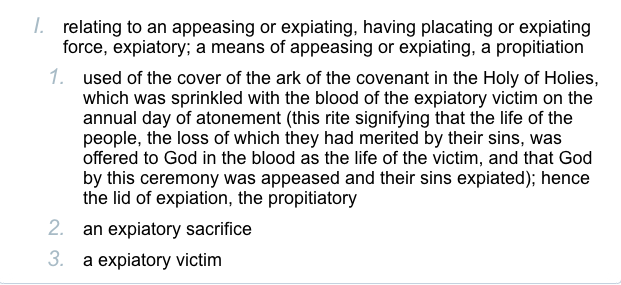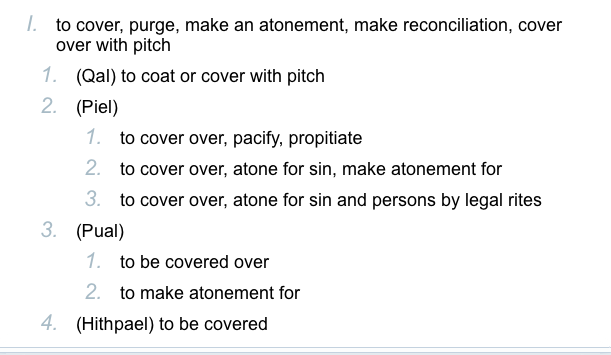I was engaging with Orthodox believers on Twitter about the Confession of Dositheus and its prohibition on reading the Bible when someone claimed that parts of the Confession had actually been repudiated by various synods.
 |
| https://twitter.com/JYLewis3/status/1733632063470018592 |
Parts of it were repudiated in later synods doesn't mean we throw everything out. It was too westernized in language. Fr. Trenham is great. He is not authoritative.
 |
| https://twitter.com/JYLewis3/status/1733625463866847372 |
Also per Trisgonfilms if you email them they will break it down. It isn't even completely authoritative. We don't blindly read councils and confessions etc. Outside the interpretative lens of the church.Blindly reading scripture without spiritual guidance can be unadvisable
The fact is he is wrong. The Confession of Dositheus is both authoritative and normative. There have been no synods which have repudiated a single word of the confession. This is attested to by Michael Pomazansky in his book Orthodox Dogmatics.
The interpretations of the Symbol of Faith, or the "Symbolic Guides" (from the Greek symballo, meaning "to unite;" symbolon, a uniting or conditional sign) of the Orthodox Faith, in the common meaning of this term, are those expositions of Christian faith which are given in the Book of Canons of the Holy Apostles, the Holy Local and Ecumenical Councils, and the Holy Fathers. The theology of the Russian Church also makes use, as symbolical books, of those two expositions of the Faith which in more recent times were evoked by the need to present the Orthodox Christian teaching against the teaching of the unorthodox confessions of the second millennium. These books are: The Confession of the Orthodox Faith compiled by the Patriarch of Jerusalem, Dositheus, which was read and approved at the Council of Jerusalem in 1672 and, fifty years later, in answer to the inquiry received from the Anglican Church, was sent to that church in the name of all the Eastern Patriarchs and is therefore more widely known under the name of "The Encyclical of the Eastern Patriarchs on the Orthodox Faith."
http://www.holytrinitymission.org/books/english/dogmatics_pomazansky.htm
Here he notes that the Confession is a symbolical book which presents an Orthodox exposition of the faith against unorthodox confessions.
In a catechism published in 2006 His Eminence Panteleimon Lampadario notes that the Confession of Dositheus embodies Apostolic Tradition.
Question 15: What sources embodied Apostolic Tradition?
Answer: The oral and living Teachings of the Holy Apostles that were passed down by word of mouth, began to differentiate from Holy Scripture during the second century. This comprised the Apostolic Tradition that was recorded and embodied within:
(a) The official interpretations of Scripture.
(b) The Symbols or Confessions of Faith. The interpretations of the Symbol of Faith of the Orthodox Church, in the common meaning of this term, are those expositions of the Christian Faith which are given in the:1 - Books of Canons of the Holy Apostles.
2 - The Holy Local and Ecumenical Councils.
3 - The Holy Fathers.
4 - The Confession of the Orthodox Faith, compiled by Dositheus, Patriarch of Jerusalem in 1672.
5 - The Encyclical of the Eastern Patriarchs on the Orthodox Faith, compiled by Dositheus, Patriarch of Jerusalem in 1732.https://drive.google.com/file/d/1MJAhPmagwm2jji1x86Es3fRCuvg3Ctzm/view?pli=1
Along with Pomazansky His Eminence Panteleimon Lampadario also calls the Confession of Dositheus an exposition of the Christian Faith.
Likewise, Bishop Kallistos Ware lists the confession amongst the Chief Orthodox Doctrinal Statements.
While the doctrinal decisions of general councils are infallible, those of a local council or an individual bishop are always liable to error; but if such decisions are accepted by the rest of the Church, then they come to acquire Ecumenical authority (i.e. a universal authority similar to that possessed by the doctrinal statements of an Ecumenical Council). The doctrinal decisions of an Ecumenical Council cannot be revised or corrected, but must be accepted in their entirety; but the Church has often been selective in its treatment of the acts of local councils: in the case of the seventeenth-century councils, for example, their statements of faith have in part been received by the whole Orthodox Church, but in part set aside or corrected.
The following are the chief Orthodox doctrinal statements since 787:
The Encyclical Letter of St Photius (867).
The First Letter of Michael Cerularius to Peter of Antioch (1054).
The decisions of the Councils of Constantinople in 1341 and 1351 on the Hesychast Controversy. The Encyclical Letter of St Mark of Ephesus (1440 – 1).
The Confession of Faith by Gennadius, Patriarch of Constantinople (1455 – 6).
The Replies of Jeremias II to the Lutherans (1573 – 81).
The Confession of Faith by Metrophanes Kritopoulos (1625).
The Orthodox Confession by Peter of Moghila, in its revised form (ratified by the Council of Jassy, 1642).
The Confession of Dositheus (ratified by the Council of Jerusalem, 1672).
The Answers of the Orthodox Patriarchs to the Non-Jurors (1718,1723).
The Reply of the Orthodox Patriarchs to Pope Pius IX (1848).
The Reply of the Synod of Constantinople to Pope Leo XIII (1895).
12.The Encyclical Letters by the Patriarchate of Constantinople on Christian unity and on the ‘Ecumenical Movement' (1920, 1952).
The Orthodox Church, pg. 197.
Note that Ware writes "in the case of the seventeenth-century councils, for example, their statements of faith have in part been received by the whole Orthodox Church, but in part set aside or corrected." That would include the Confession of Dositheus but he does not indicate anywhere in his book that any section of that confession has been set aside or corrected.
If the Confession of Dositheus is a faithful exposition of Orthodoxy how could any of it be repudiated? By default it would have to be accepted by everyone. To repudiate it means the Council of Jerusalem which ratified it gave their approval to a document which does not accurately convey Orthodox beliefs.














